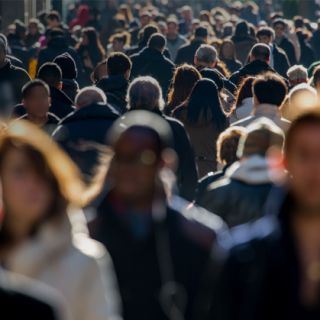
Diaspora Ministries: Unexpected Opportunities
This post is an excerpt from SEND Canada's 2021 Annual Report.
-----
The word “diaspora” comes from the Greek verb “to scatter.” SEND Canada’s diaspora ministries endeavor to reach people who, for various reasons, are living outside of their birth country. In many cases, diaspora peoples come from countries with little access to the Gospel.
Typically, SEND Canada diaspora ministries have focused on sending short term teams to places where Chinese, Vietnamese, or Filipino diaspora have settled. SEND Canada’s diaspora teams have travelled to Eurasia to reach Chinese diaspora, Southeast Asia to reach Vietnamese diaspora, and Western Asia to reach Filipino diaspora. These ministry trips include opportunities such as evangelizing in the marketplace, going to restaurants owned by diaspora people to engage in gospel conversations, providing discipleship seminars, and visiting diaspora churches.
In the last two years or so, with much travel being restricted, ministry connections moved to online platforms. Bible studies, worship services, prayer meetings, mentoring, and coaching have been conducted over Zoom.
One unexpected opportunity came through a Facebook connection. It was on that social platform that a Christian organization in Asia connected with Pastor M*, SEND Canada’s Vietnamese Diaspora Coordinator. The leaders of the organization invited him to speak at several outreach events. While the attendees gathered in person, Pastor M called in through Zoom to preach to the group.
The outreach events have reached over 7,000 people with the Gospel, and many have responded with faith in Jesus as their Saviour.
We are encouraged by the ways God has worked through diaspora ministries even in unique circumstances. Connections leading to evangelism and discipleship opportunities continue to be made with Chinese, Filipino, and Vietnamize diaspora. People are still coming to faith in Christ through unexpected opportunities. Diaspora believers and Christian leaders are continuing to mature in their faith.
We look forward to all that God will continue to do through SEND Canada’s diaspora ministries.
*Name not used for security reasons
Additional Posts




